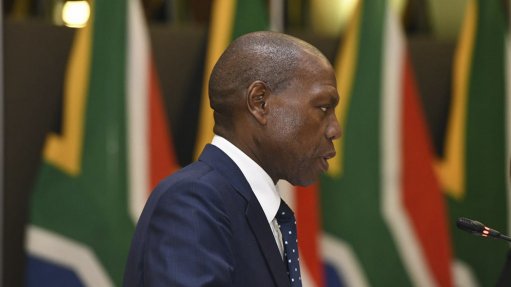
Health Minister Zweli Mkhize
South Africans seem to be becoming fatigued and letting their guards down at a time when Covid-19 infections are expected to surge, Health Minister Zweli Mkhize says.
He made this remark in his daily statistics update on Sunday, saying the government had done its bit to mobilise resources for required interventions, but needed everyone to play their parts and adhere to recommendations regarding non-pharmaceutical interventions.
"We are extremely concerned that fatigue seems to have set in and South Africans are letting down their guard at a time when the spread of infection is surging. We see poor or no social distancing in communities. Masks are being abandoned or not worn properly and there is laxity setting in around frequent hand-washing," Mkhize said.
This attitude by the public would directly influence the rise in cases in the coming weeks.
Mkhize urged people to continue adhering to the set Covid-19 regulations to prevent the spread, adding it was possible to beat the pandemic if the government and the public worked together.
He said it was up to citizens to call out their family members, colleagues and friends who were not adhering to measures put in place to reduce the spread.
"We do not have a vaccine. We do not have a cure. Our ability to break the cycle of infection depends on our willingness to remain focused and disciplined and take non-pharmaceutical interventions seriously," Mkhize urged.
Engaging community
South Africa has seen a shift in behaviour since the easing of lockdown from Level 4 to 3 - and with the sale of liquor. Law enforcement agencies have had to disperse and arrest people hosting house link ups and other gatherings.
Mkhize said his office was hearing from the Western Cape that most members of the public remained reluctant to subject themselves to quarantine and isolation, despite the government having secured these sites in various parts of the province.
He said such attitudes from the public posed a risk to the fight to stop the virus spreading, adding the department remained committed to working with communities - and was working on a programme with social scientists and the newly established multi-sectoral Ministerial Advisory Committee on Social Behavioural Change to get fundamental reform at grassroots levels in order to save lives.
"It will be important to engage community, religious and traditional leaders who can motivate individuals to adhere to non-pharmaceutical interventions," said Mkhize.